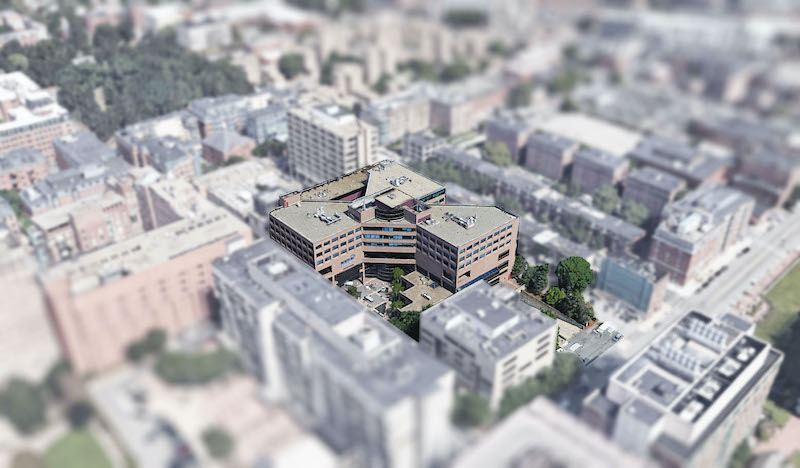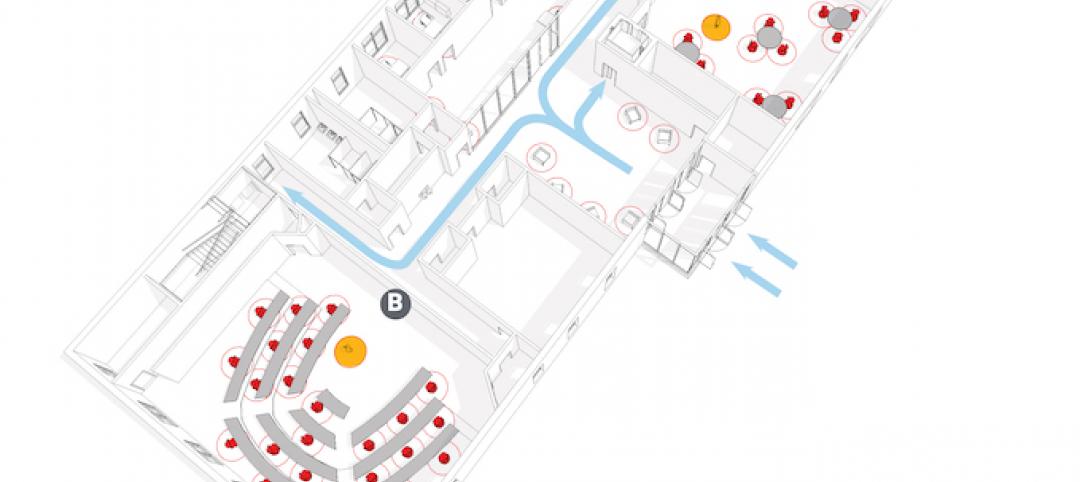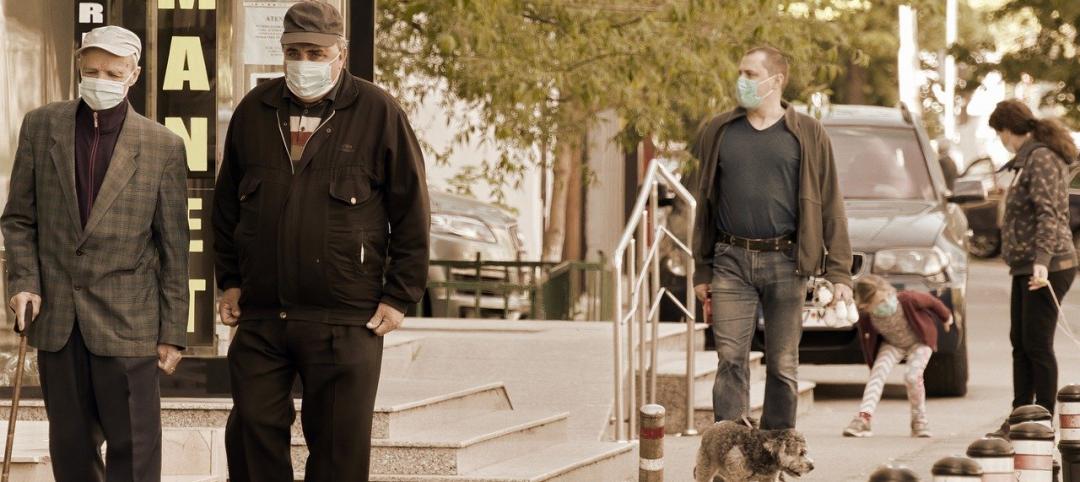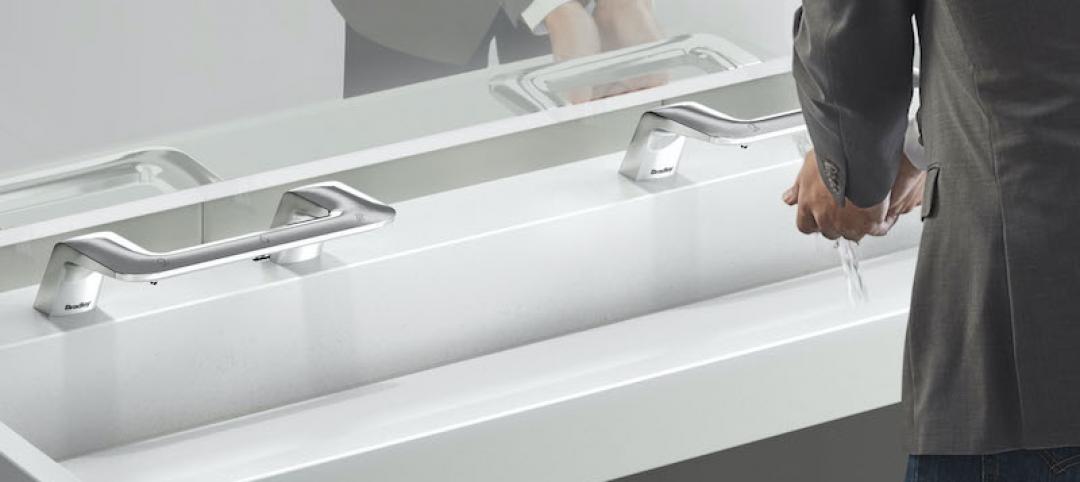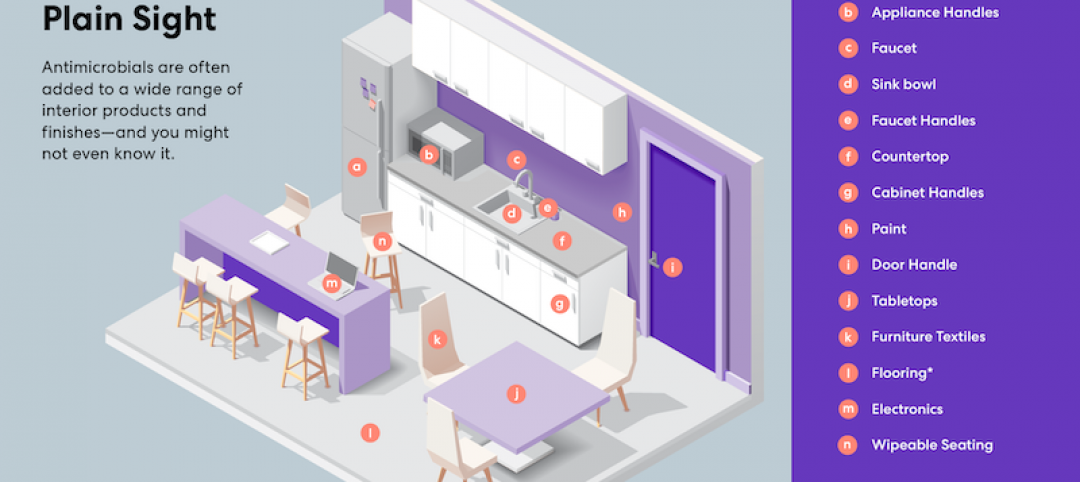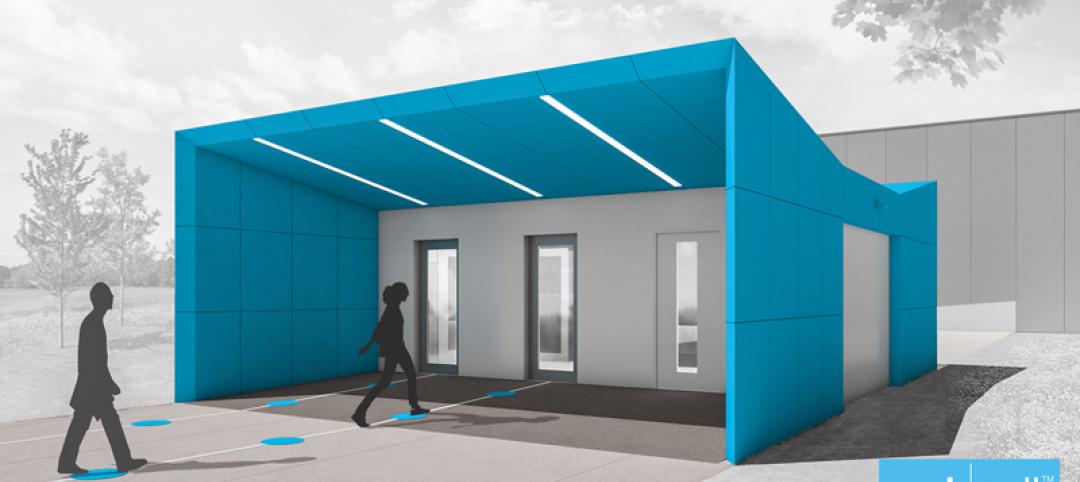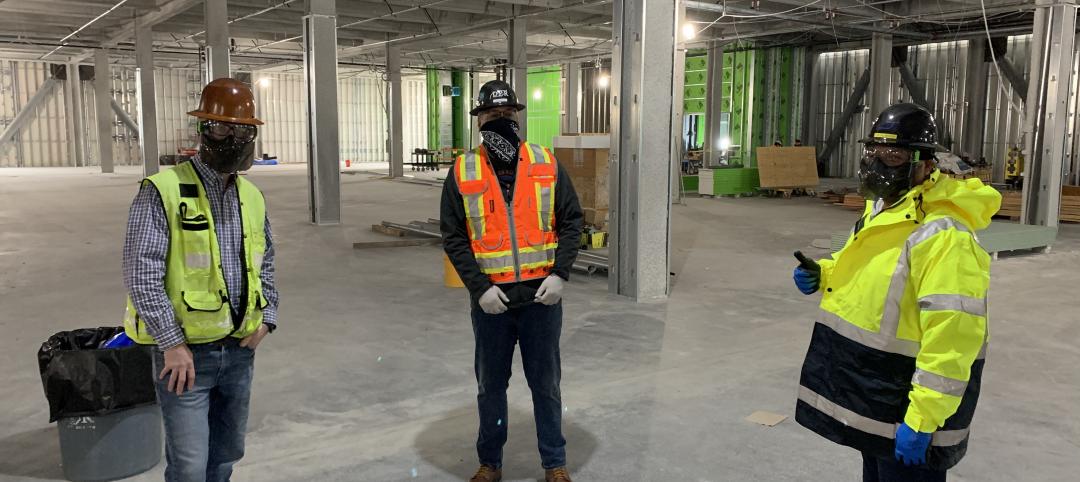The S/L/A/M Collaborative, Boston Studio (SLAM) and Gilbane Building Company (Gilbane), in partnership with the Massachusetts Division of Capital Asset Management & Maintenance (DCAMM), Boston Medical Center (BMC), Boston Healthcare for the Homeless, the Department of Public Health, led the technical planning, design and construction of a temporary quarantine shelter in response to the COVID-19 pandemic. The facility has a maximum capacity of up to 304 non-acute beds for Boston-area homeless at the former Newton Pavilion previously managed by Boston Medical Center at 88 E. Newton Street in Boston, MA.
The Newton Pavilion has been a shuttered hospital facility since October 29, 2018. SLAM and Gilbane were contracted by the current building owner, DCAMM, to assist them in assessing the building and devising an occupancy plan to convert the space for homeless patients who are not in need of acute hospitalization, yet test positive for the coronavirus, but are a-symptomatic or showing mild symptoms with orders to quarantine at home.
The coordination and focused effort to ready the Newton Pavilion for occupancy on April 9, 2020, required full-day meetings over a 28-day period held between DCAMM, BMC, Gilbane, and the SLAM design team, led by Senior Associate Loren Belida, AIA and Gilbane’s Senior Project Executive Jim Dabrowski. Following the Army Corps of Engineers review and swift approval of the occupancy plan demonstrating SLAM’s technical expertise and in-depth work in healthcare programming and planning, Gilbane was able to rapidly mobilize on-site and deliver the facility ahead of schedule.
“DCAMM was ahead of the curve when asked what it would take to temporarily re-open the “mothballed” facility” said Carol Gladstone, DCAMM Commissioner, “The project team quickly developed a very comprehensive and integrated execution plan that involved splitting construction scope between our internal team and Gilbane. I had extremely high confidence that we could rise to the challenge and deliver in a short timeframe.”
BMC will manage operations for the temporary facility and patient care will be administered by their clinical staff. The total re-occupied project area makes up approximately 166,500-square feet, spanning eight floors and the overall project scope includes the reactivation/upgrade to building systems including life safety, HVAC, fire protection, plumbing, fire protection, medical gasses, electrical and architectural upgrades.
“Gilbane is grateful for the opportunity to work on this critical project delivered by this incredibly dedicated team. Our team and subcontractor partners worked three shifts, working literally 24 hours a day to deliver this much-needed facility ahead of schedule. We’re honored to be of service to the Commonwealth and its citizens at this time of great need”, said Mike O’Brien, vice president, Massachusetts business unit leader.
SLAM and Gilbane have partnered on more than 40 projects throughout New England and across the country.
“The project team understood from day one that reinvigorating the space and systems of a “mothballed” hospital would require expertise, proactivity, coordination, and flexibility,” says Gabriel Comstock, AIA, lead healthcare planner and design architect, SLAM Boston Studio. “From the Commonwealth to the subcontractors, I’ve never seen a purer example of unyielding technical collaboration and speed to serve the most vulnerable populations at a more critical time in our community.”
Related Stories
Coronavirus | Jun 14, 2020
A new report on how campus buildings can reopen safely
Leo A Daly white paper suggests dividing students into smaller “cohorts,” and assigning bathroom spaces.
Coronavirus | Jun 12, 2020
BD+C launches 'The Weekly,' a streaming program for the design and construction industry
The first episode, now available on demand, features experts from Robins & Morton, Gensler, and FMI on the current state of the AEC market.
Coronavirus | Jun 9, 2020
Going viral: How the coronavirus pandemic could change the built environment
Architecture and construction firms—and their clients—are asking new questions about infection control as it pertains to people assembly, building wellness, and technology.
Fire and Life Safety | Jun 9, 2020
NFPA develops business reopening checklist for fire and life safety measures
The new checklist helps building owners and facility managers ensure fire and life safety as businesses prepare to re-open amid the coronavirus pandemic.
Coronavirus | Jun 9, 2020
CannonDesign unveils COVID Shield
As the world evolves its response to the COVID-19 pandemic, one clear reality is testing for the virus will be part of our daily lives for the foreseeable future.
Coronavirus | Jun 5, 2020
3 strategies to improve the wellness of building systems and gain tenant trust
Three operational issues that must be prioritized for every building in order to achieve tenant trust are air quality/ventilation, relative humidity, and building commissioning.
Coronavirus | Jun 2, 2020
5 ways to improve hand washing and minimize germs in public restrooms
Bradley Corp. offers five upgrades to make public restrooms more sanitary.
Coronavirus | Jun 2, 2020
Perkins and Will, Healthy Building Network advise against the use of antimicrobial building products
Even during a pandemic, antimicrobial building products may do more harm than good.
Coronavirus | May 30, 2020
A welcoming entry-point for wellness screening anywhere
Modular WorkWell™ ecosystem can process up to 40 people per minute.
Coronavirus | May 29, 2020
Black & Veatch, DPR, Haskell, McCarthy launch COVID-19 construction safety coalition
The NEXT Coalition will challenge engineering and construction firms to enhance health and safety amid the Coronavirus pandemic.


